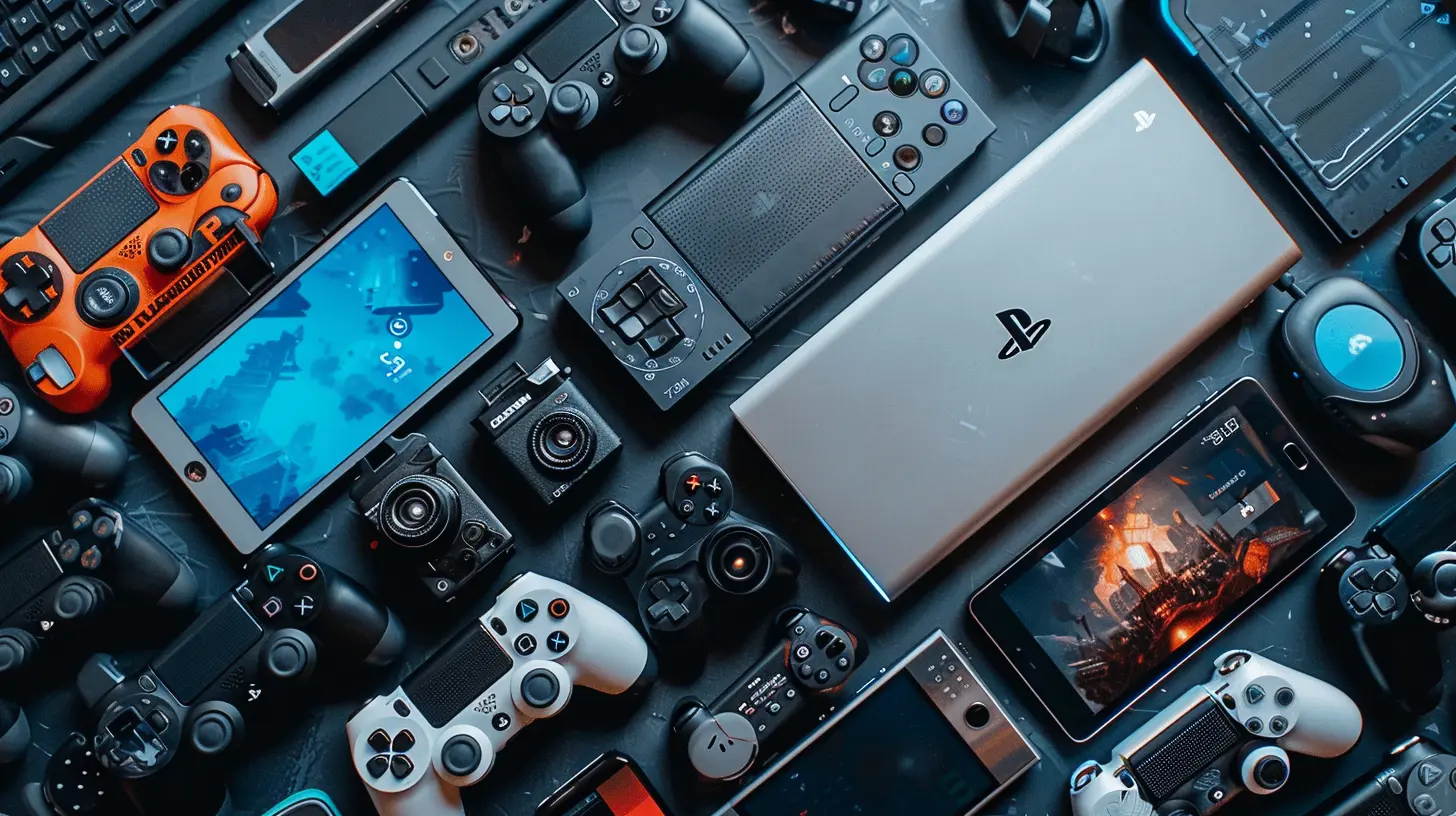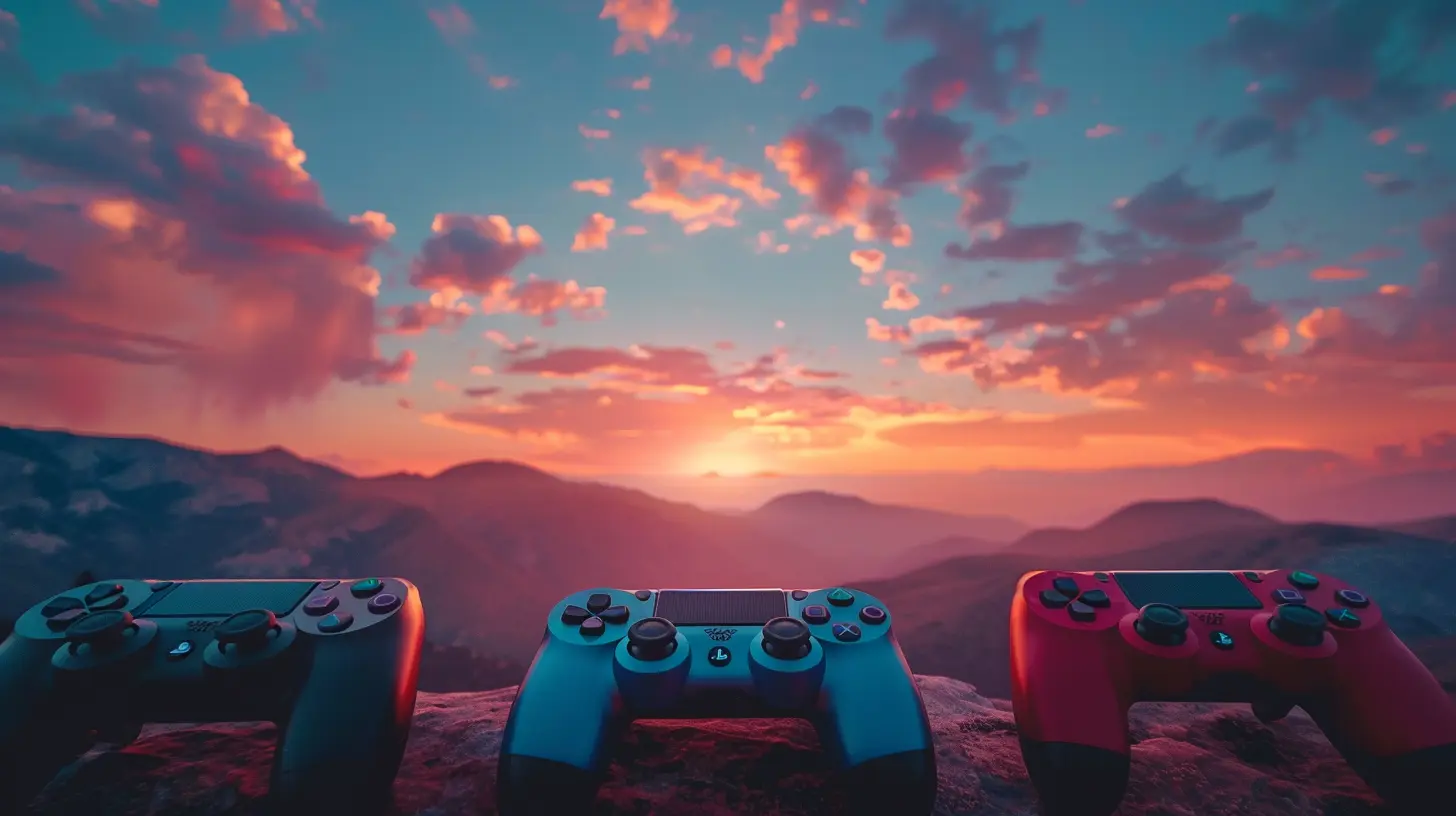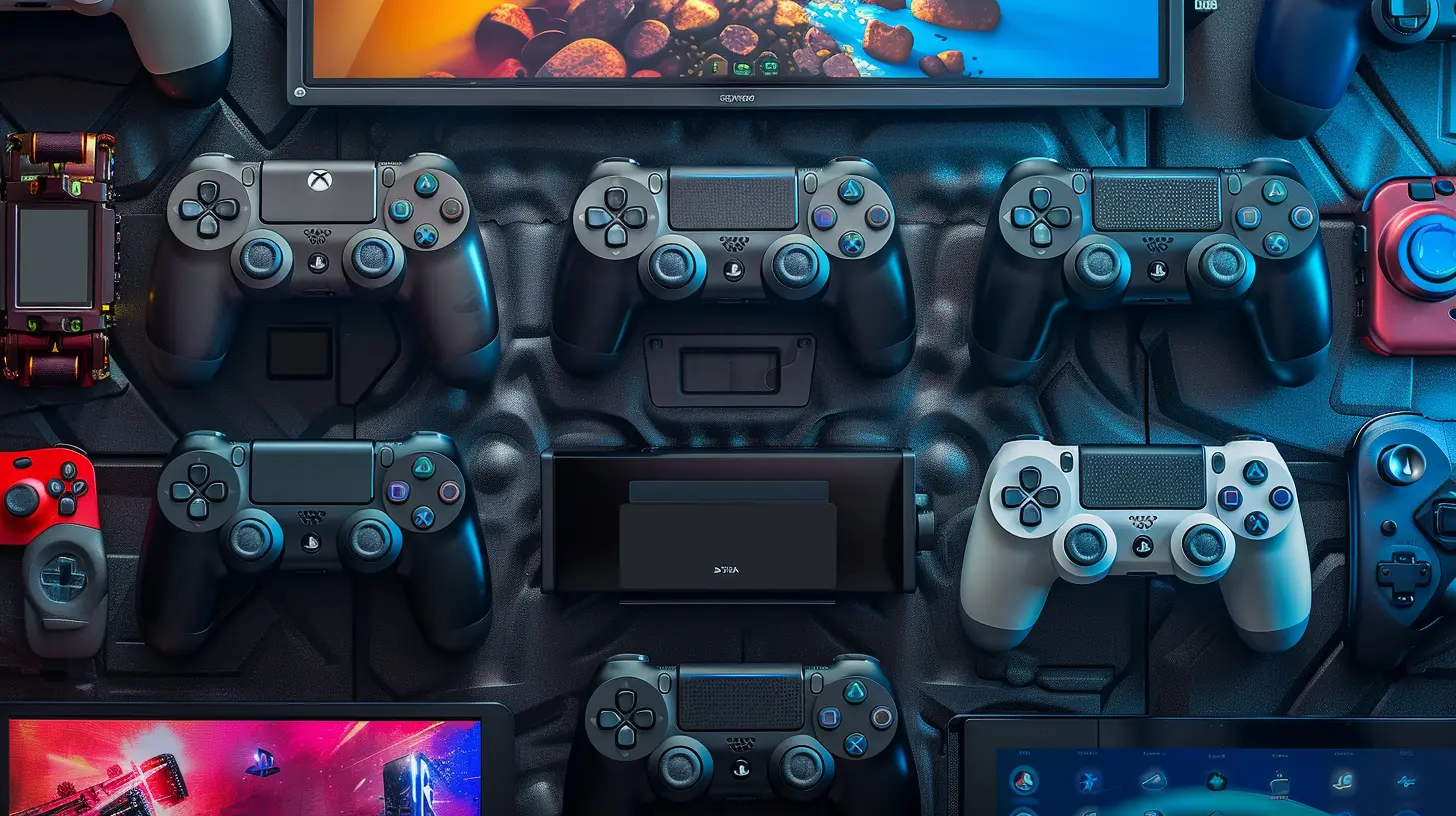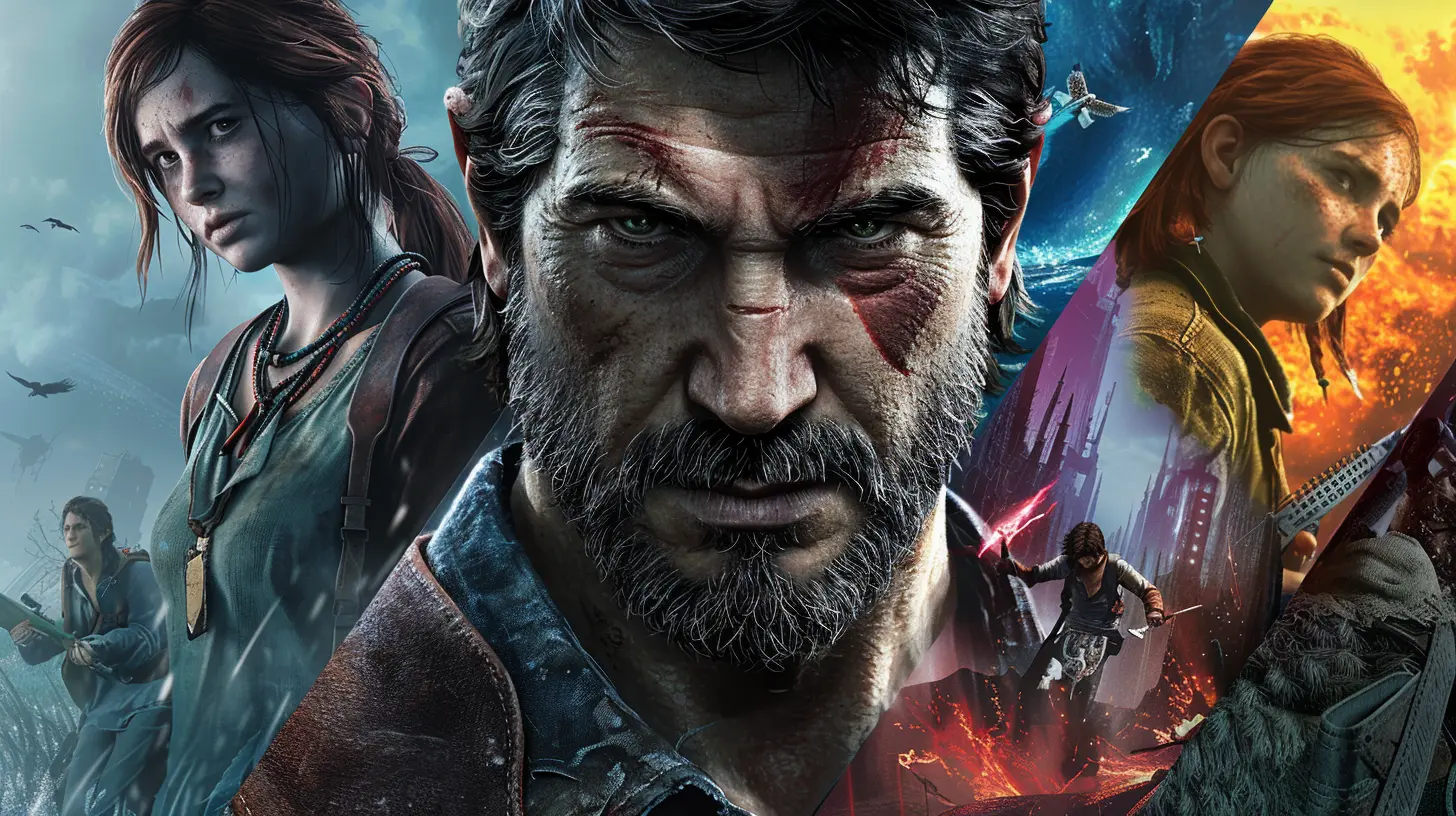The Role of Console Exclusives in Changing the Gaming Landscape
20 November 2025
Gaming is more than just a pastime—it's a culture, a community, and a thriving entertainment industry. If you’ve been following the gaming world for a while, you’ve probably noticed the intense debates surrounding console exclusives. Why do companies like Sony, Microsoft, and Nintendo fight tooth and nail to secure these special titles? And more importantly, how have these exclusives shaped the gaming landscape we know today?
Let’s cozy up, grab a controller (or maybe just your snack of choice), and dive into why console exclusives are such a huge deal, how they’ve influenced the industry, and whether they’re still relevant in a world going crazy for cloud gaming and cross-platform play.
What Are Console Exclusives, Anyway?
Before we get into the nitty-gritty, let’s address the burning question: What exactly qualifies as a console exclusive? Simply put, these are games specifically tied to a particular gaming platform. For example, if you’re a PlayStation fan, titles like The Last of Us and God of War probably come to mind. On the other hand, Xbox lovers might be swooning over Halo or Forza. And let’s not forget Nintendo's heavy hitters like Zelda and Super Mario.But here's where it gets spicy. Not all exclusives are created equal. Some are true exclusives, meaning you can only play them on a specific console. Others are timed exclusives—those games that show up on one platform first before becoming available elsewhere. Think of it like when a movie is first released in theaters before hitting streaming services.
The Role of Console Exclusives: Why Do They Matter?
You might be wondering, why do companies even bother locking games to one platform? Why not just release every game everywhere and let everyone play? Valid questions, but exclusives serve some pretty big purposes.1. Driving Console Sales
Let’s be real—console manufacturers are in it for the money. Whether it’s Sony, Microsoft, or Nintendo, their ultimate goal is to sell you their hardware. And what better way to do that than by giving you access to games you can’t get anywhere else?Think about it: Would the PlayStation 4 have dominated the console wars if it didn’t have Bloodborne, Uncharted 4, or Horizon Zero Dawn? Probably not. These exclusives create a compelling reason for gamers to pick one console over another. It's like choosing a streaming service. Would you subscribe to Netflix if they didn’t have their original shows? Exactly.
2. Building Brand Loyalty
Exclusives aren’t just games—they’re experiences that tether you to a platform. If you’ve spent hundreds of hours immersed in the Halo universe, you might feel an emotional connection to Xbox. Similarly, if The Legend of Zelda defined your childhood, Nintendo likely holds a special place in your gaming heart.This loyalty isn’t just about nostalgia; it's strategy. Gamers who are hooked on a platform-exclusive title are more likely to stick around for future generations of that console. It’s a long game (pun totally intended), but it works.
3. Showcasing What the Hardware Can Do
Here’s where exclusives really shine. Because they’re built specifically for one console, developers can optimize these games to take full advantage of the hardware. This often results in jaw-dropping visuals, smoother gameplay, and unique features that might be tricky to implement on other platforms.Remember how The Last of Us Part II pushed the PlayStation 4 to its limits? Or how Gears of War became the poster child for Xbox’s graphical capabilities? Console exclusives aren’t just about the game—they’re a showcase of what the machine powering it can do.
The Impact of Console Exclusives on Gamers
While exclusives can make or break a console’s success, they also have a huge impact on us, the players. And honestly? It’s a bit of a mixed bag.The Good: Unique and Polished Experiences
When done right, console exclusives offer some of the best gaming experiences out there. Developers often pour their heart and soul into these titles because they know the stakes are high. This results in highly polished games that can define a generation. Think Spider-Man: Miles Morales or Breath of the Wild. These aren’t just games—they’re masterpieces.The Bad: FOMO (Fear of Missing Out)
But let’s not sugarcoat things. Exclusives can also be frustrating. If you don’t own a specific console, you’re out of luck. Have you ever wanted to play God of War but couldn’t because you’re an Xbox user? Yeah, it stings. And not everyone can afford to own multiple consoles just to access every game out there.This “locked behind a paywall” vibe leaves many gamers feeling alienated. It’s especially difficult for those who can't justify shelling out hundreds of dollars for a new console just to play one or two games.
The Divide: Splitting Communities
And then there’s the whole “team” mentality. Console exclusives often fuel the never-ending flame wars between PlayStation, Xbox, and Nintendo fans. While some harmless rivalry can be fun, it can also lead to toxic debates that overshadow what gaming is really about—having fun.
Are Console Exclusives Losing Their Power?
As we move toward a new era of gaming, there’s a big question hanging in the air: Are console exclusives still relevant? With cloud gaming, subscription services, and cross-platform play becoming more mainstream, some argue that the days of exclusives might be numbered. Let’s break it down.Cloud Gaming and Subscription Services
Services like Xbox Game Pass have completely changed the way we think about gaming. Why buy a $70 game when you can have access to hundreds of titles for a little monthly fee? Microsoft has even started putting its exclusives on Game Pass on day one, making it easier for players to access them without owning an Xbox.Not to mention, cloud gaming platforms like NVIDIA GeForce Now and Google Stadia (RIP, you tried) are blurring the line between platforms. If all you need is a screen and an internet connection to play, does it really matter what device you're using?
Cross-Platform Play
Remember when playing with friends on different consoles was just a pipe dream? Thanks to cross-platform play, that’s no longer the case. Games like Call of Duty: Warzone and Fortnite have proven that you don’t need to tie players to a single console to have a good time. It's all about bringing people together, no matter what device they’re on.The Shift to PC
Even exclusives themselves aren’t as exclusive anymore. Titles that were once strictly tied to one console are now making their way to PC. Sony, for example, has been releasing its PlayStation exclusives on PC. Horizon Zero Dawn, God of War, and Spider-Man are just a few examples. This trend makes it clear that the lines between platforms are starting to blur.The Future of Console Exclusives
So, what’s next? Will exclusives fade into obscurity, or will they continue to be a cornerstone of the gaming industry? Honestly, it’s a bit of both.While the rise of cross-platform play and cloud gaming is undeniable, there will likely always be room for exclusives. They’re a way for console makers to stand out in an increasingly crowded market. Plus, let’s face it—exclusive games often end up being some of the best games.
However, the approach might need to evolve. Instead of locking players out entirely, companies could focus on creating timed exclusives or launching their games across multiple platforms after an initial release period. It’s a win-win: the console gets its moment in the spotlight, and gamers ultimately get more ways to play.
Final Thoughts: Love 'Em or Hate 'Em?
At the end of the day, console exclusives are a double-edged sword. They’ve given us some of the most unforgettable gaming experiences but have also stirred up plenty of frustration along the way. Whether you love them or hate them, there’s no denying their impact on the gaming world.As the industry continues to evolve, so too will the role of exclusives. Who knows? Maybe one day, we won’t need to choose between consoles at all. But until then, we’ll just have to keep debating (and maybe saving up for that second console).
all images in this post were generated using AI tools
Category:
Console GamesAuthor:

Tayla Warner
Discussion
rate this article
2 comments
Serenity Jones
Console exclusives drive innovation and competition.
November 29, 2025 at 5:04 PM

Tayla Warner
While console exclusives can stimulate innovation and competition, they also risk fragmenting the gaming community and limiting access to diverse experiences. Balancing exclusivity with inclusivity is key for the industry's future.
Cypher Snow
Console exclusives redefine gaming, sparking innovation and passion in every player's journey!
November 21, 2025 at 5:55 AM

Tayla Warner
Thank you for your insights! Console exclusives indeed play a crucial role in driving innovation and enriching the gaming experience for players.


